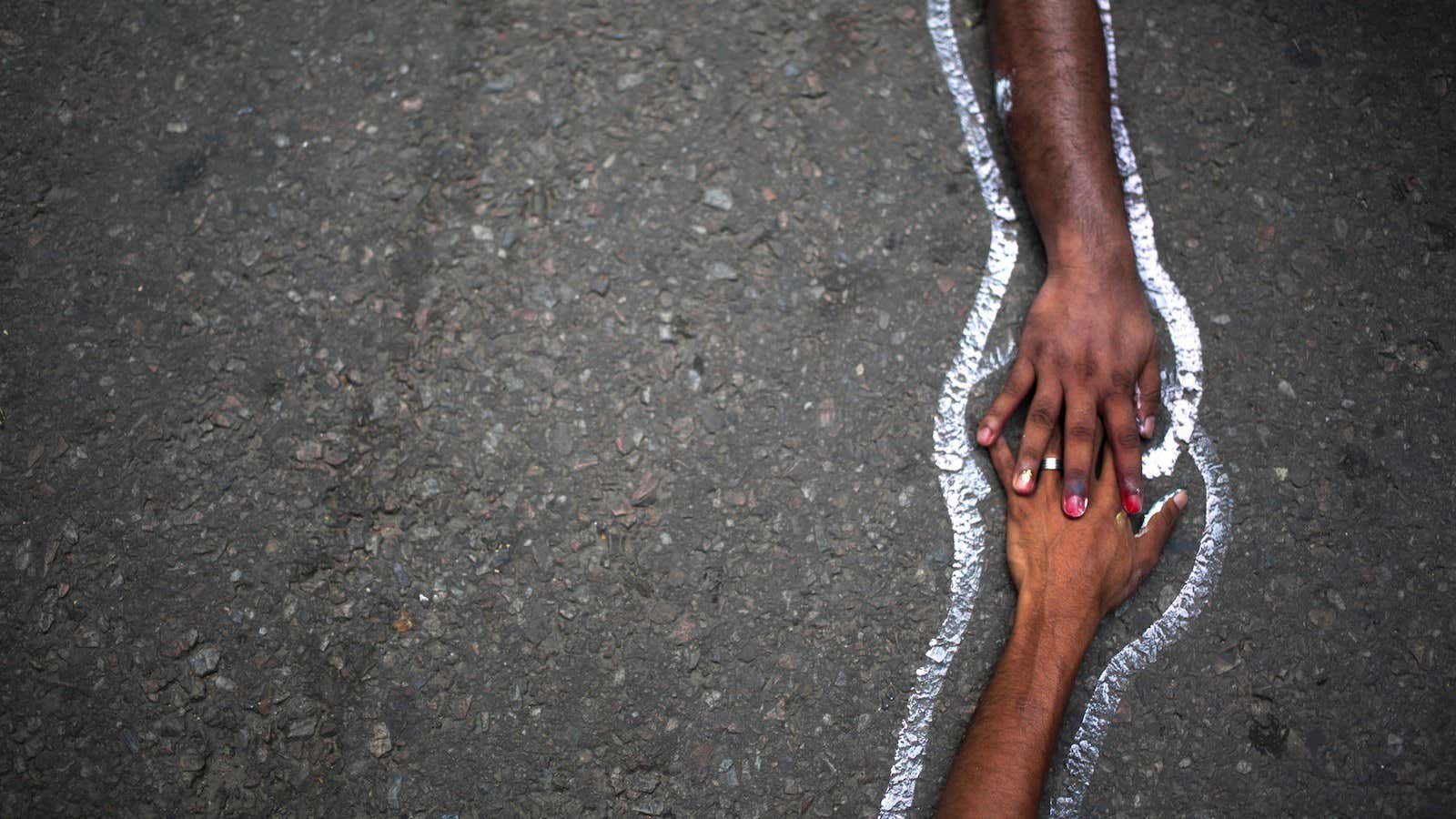Like most of America, I was shocked and bamboozled by the news that Rachel Dolezal, an apparently white woman in Spokane, Washington, had been passing as black for years.
My initial reaction was similar to this:
Some critics have argued that this is just another instance of whites appropriating blackness when it works to their advantage, no different from blackface. Others have suggested that the performative element of Dolezal’s decision makes a mockery of African-Americans. “No matter how much make-up you don, wigs you wear, or colloquialisms you speak, one cannot become black,” writes Morgan Jenkins for Quartz.
As the writer Terry McMillan put it on Twitter;
But after my initial astonishment, I tried to understand why she did it. Now, no one really knows why Dolezal chose to self-identify as black. She apparently intends to address the press and the issues surrounding the whole furor on Monday, the Associated Press is reporting.
What we do know, however, is that Dolezal has worked hard as an advocate for civil rights to the extent that she became the president of her local chapter of the NAACP. She has been credited with “breathing new life into the chapter, raising its visibility and membership in an overwhelmingly white region.” She has siblings who are black, and she has been married to a black man, with whom she has a 13-year-old child.
Is it possible, then, that in light of her passion for social justice, Dolezal came to the conclusion that it is impossible to fight racial oppression without being truly part of the black experience?
A bit of context. I am an African Muslim of Arabic descent. My social circle consists of a rainbow of people from all over the world: white, black, brown, whatever color you can think of.
There are times, however, when I have conversations with my friends about being Muslim or African or Arab and I feel like there is a limit to their understanding of what that reality can be like.
I mean, can just anyone truly appreciate what it feels to walk into a room and be the only brown person there? Can just anyone understand the visceral pain of being called a “Paki,” as I was in Britain? What about the anger that comes from being asked why I hate women just because I am Muslim, as it once happened to me? Don’t get me wrong, my friends do sympathize. But I am never 100% sure they can fully comprehend what that feels like.
So when I think about Dolezal, I have to say, part of me thinks of her action as the ultimate act of empathy.
By going around identifying herself as black, and being treated as such, she was able to finally understand what it’s like to be African-American in a country that still struggles with racial injustice. She was able to walk in the shoes of millions of Americans and know what racism and discrimination feel like. She chose to walk in those shoes. I see something admirable in that, and I hope others will see it too.




